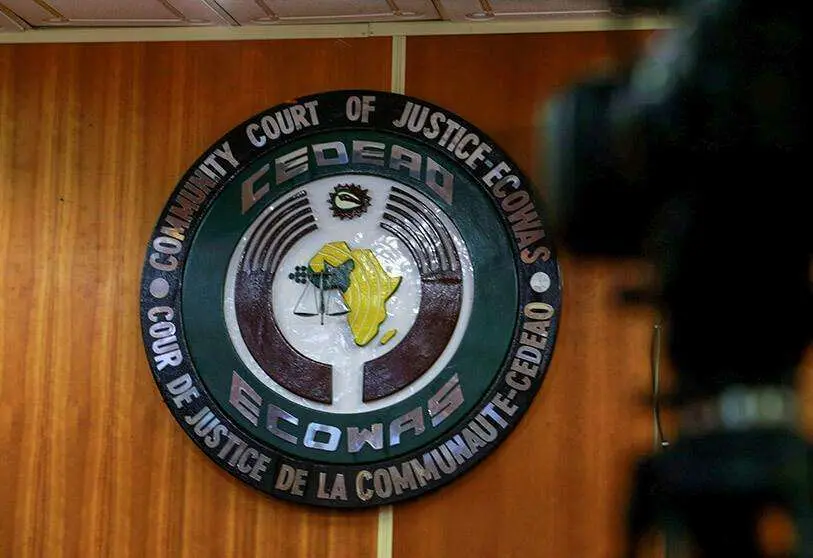Mali frees itself from the burden of economic sanctions and resumes regional dialogue with ECOWAS

The Economic Community of West African States (ECOWAS), which brings together 15 countries in the region, decided on Sunday at its summit in Accra, Ghana's capital, to lift most of the economic sanctions that had been imposed on Mali since January. The sanctions were imposed in response to two coups in the Sahel country, followed by a refusal to implement a democratic transition plan in the country.
These sanctions stifled the country's economy and affected the Malian population the most. Analysts and Sahel experts warned in January that such sanctions would not put real pressure on Mali's ruling military junta, but would impoverish the population and encourage adherence to jihadist and criminal groups.
With this change, borders are reopened, trade and ambassadors return to Bamako, the capital of Mali. On the other hand, sanctions and blockades on Mali's oligarchs and military leaders remain in place. Nor will Mali return to ECOWAS decision-making bodies.

"These changes are very positive, especially for Malians," Beatriz de León Cobo, coordinator of the Sahel-Europe Dialogue Forum at the Francisco de Vitoria University, told Atalayar. According to the analyst, these changes had been "brewing for months".
The mediation work of Nigeria's former president, Goodluck Jonathan, has now borne fruit and Mali is abandoning its hostile position towards its neighbours and opening up to dialogue and some changes in its internal regime. Among other decisions, they have accepted an 18-month roadmap to achieve a political transition by February 2024. According to de León Cobo, all signs point to elections in which most of the military junta, with the possible exception of leader Assimi Goïta, will participate.
"Mali had been behaving in a very hostile manner at the international level for months. If ECOWAS asked for a transition in 20 months, they said 22 months was better", adds de León Cobo. The hostile treatment of its neighbours, as well as European collaborators, created a situation of international isolation in Mali that left the country prey to Russian foreign policy, specifically the defence contractor Wagner Group. Of the three countries in the region that have experienced coups d'état in recent years, Mali has been characterised by a lack of stability, credibility and legal security that has made its relationship with international organisations much more difficult.

This isolation is coming to an end with the military junta's latest decisions, which have been sufficient to get the green light from ECOWAS. In addition to committing to comply with the 2024 electoral calendar, the Malian military junta made public who will be in charge of revising the country's constitution and remodelled its electoral law to allow military personnel on the electoral lists, under the condition that they leave their posts four months beforehand.
For de León Cobo, the balance of these changes is positive, "Especially for Malians in the short and medium term. They will no longer be strangled by this economic crisis. But in the long term, it seems that the military junta is going to stay for a long time and we are going to have to live with them", explains the analyst, who believes that the priority is the people and the country's well-being, before who presides over the government in Bamako.
"What is clear is that it is a very good sign that Mali has emerged from the impasse with its neighbours. However, lifting the sanctions means giving some support to the practices that are being committed in Mali. Wagner is killing civilians in Mali. I know that one should not mix security issues with politics, but at the end of the day it is the Junta that is doing these things," concludes Beatriz de León Cobo.

These same issues to which de León Cobo refers are said to be behind the collapse of numerous avenues of cooperation between European countries and Mali. With the hostilities of the military junta and the unscrupulous collaboration with Wagner's mercenaries, more and more countries are withdrawing their training programmes in Mali, especially military ones. The best example is the presence of French troops in Operation Barkhane. France was the sole executive mission in Mali, but since the diplomatic turnaround with the military junta, it has relocated to the rest of the Sahel.
As for the G5 Sahel international cooperation framework, described by analysts as the best tool to fight the proliferation of armed groups in the Sahel, which Mali abandoned in May 2022, there is no indication that it will be revived. The enmities between Mali and Niger would prevent any future collaboration to control extremely porous borders.








